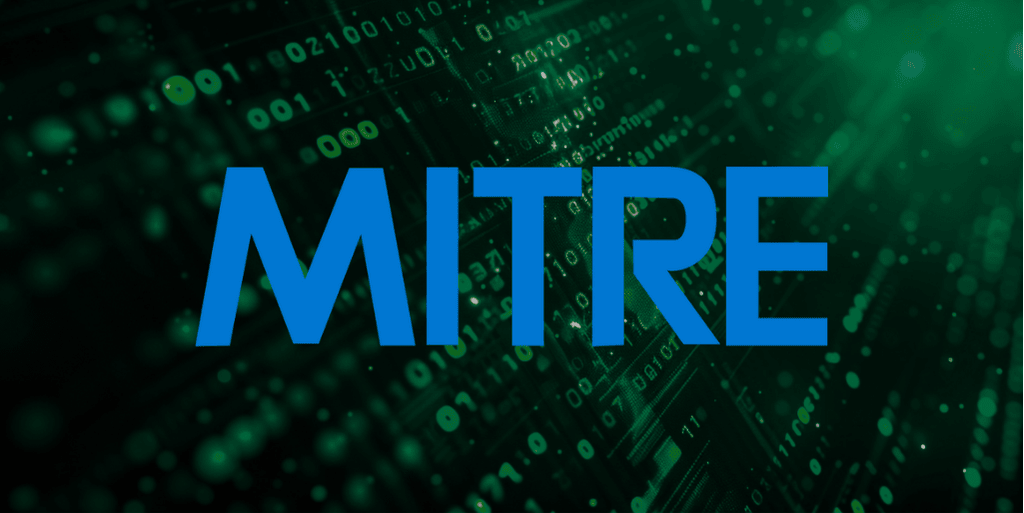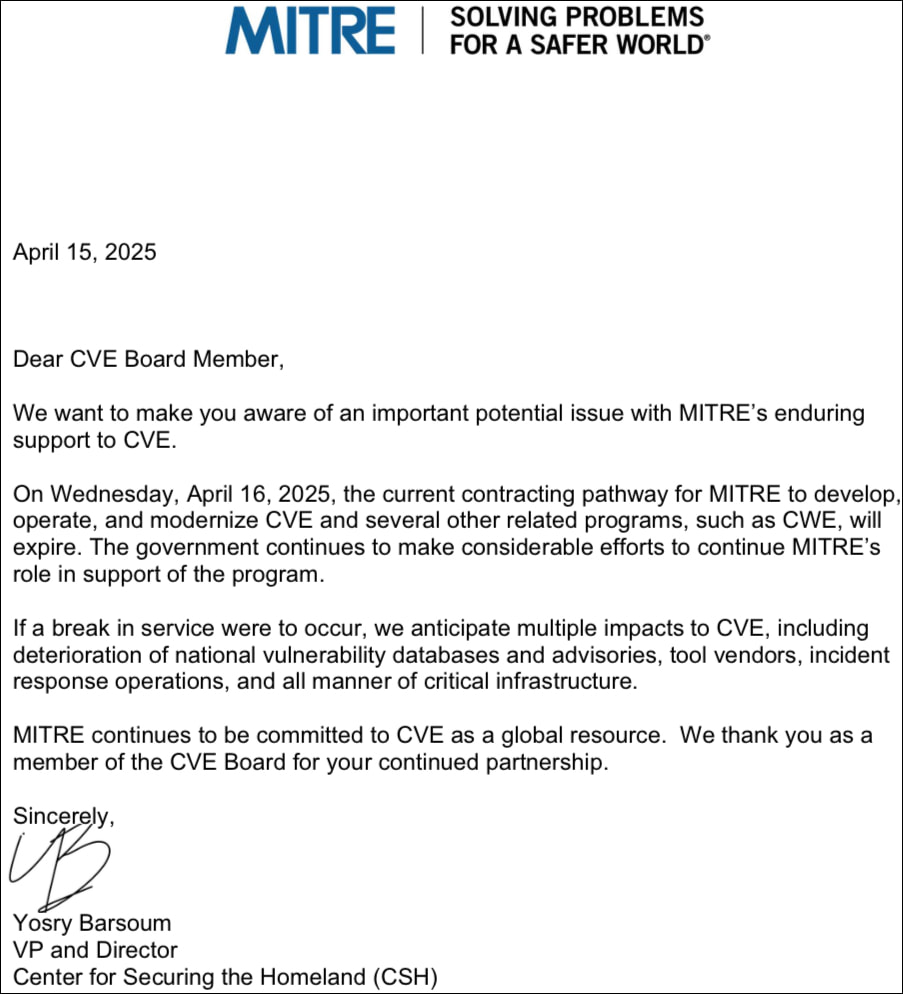
A critical U.S. government contract that underpins MITRE's stewardship of the Common Vulnerabilities and Exposures (CVE) program is set to expire today, raising concerns about potential disruptions to one of the cybersecurity industry's most vital coordination mechanisms.
MITRE, the nonprofit organization that has operated the CVE system since its inception in 1999, has warned stakeholders that without immediate action, its ability to maintain and modernize the program — alongside related efforts such as CWE — could be interrupted.
The announcement, made via a letter to the CVE Board dated April 15 and signed by Yosry Barsoum, Vice President and Director of MITRE's Center for Securing the Homeland, outlines the potential fallout of a service break. These include delays in issuing CVE identifiers, degradation of national vulnerability databases and advisories, and knock-on effects for security vendors, incident response operations, and critical infrastructure protection.

MITRE's current work on CVE has been funded through a series of short-term government contracts, a model that industry voices argue is unsustainable. Congressional discussions have so far failed to secure a long-term commitment, creating uncertainty around the future of this foundational cyber defense program.
The CVE program serves as the global source of truth for publicly disclosed software and hardware vulnerabilities, acting as the coordination nexus for thousands of vendors, researchers, and organizations. MITRE is responsible for overseeing CVE Numbering Authorities (CNAs), ensuring consistent vulnerability identification and facilitating the process by which new vulnerabilities are disclosed, categorized, and tracked.
A potential lapse in MITRE's CVE role would immediately impact the vulnerability lifecycle. Without a functioning CVE system, CNAs and researchers would be unable to publish new CVEs in a standardized manner, potentially stalling coordinated disclosure timelines and delaying patches. According to Tim Peck, Senior Threat Researcher at Securonix, this opens a dangerous window for exploitation by threat actors and undermines defense tooling that depends on timely CVE updates, including platforms like Nessus, VulnCheck, and the CISA KEV catalog.
MITRE's Common Weakness Enumeration (CWE) initiative — used for classifying software flaws — is also affected by the contract's expiration. A halt in CWE updates would ripple through secure development workflows, hampering vulnerability prioritization and risk assessments for both vendors and enterprise defenders.
Industry leaders are sounding alarms. Michael Mumcuoglu, CEO of CardinalOps, stressed that organizations like Microsoft, Google, and Apple rely on CVE data to triage and prioritize vulnerabilities. A disruption would erode the shared language used across the industry for vulnerability response, causing duplicated efforts or overlooked threats. Ariadne Conill, co-founder of Edera, added that the CVE system is central to global security infrastructure, and called for modernization through linked data frameworks like JSON-LD and OpenVEX to reduce reliance on a single point of failure.
The Reddit cybersecurity community has reacted with a mix of frustration and concern. Self-identified MITRE employees confirm internal layoffs and company-wide uncertainty, while others warn that the lapse represents a systemic failure to protect the backbone of cyber threat coordination. Calls for merging CVE and the National Vulnerability Database (NVD) into a unified, streamlined platform have gained momentum as a possible long-term solution.
Until MITRE's future role is somehow secured, organizations are recommended to strengthen internal vulnerability triage protocols, enhance threat intelligence sharing through trusted vendors, and audit automated security tooling.







Leave a Reply